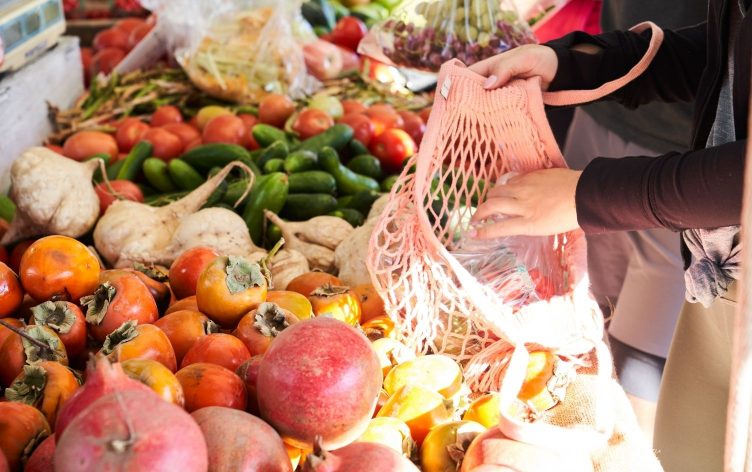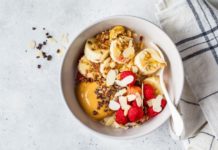
Ultimate Grocery Guide: Plant-Based Diet
I’ve been a plant-based eater for most of my life. While there’s no official definition for the term plant-based, the concept has grown to mean something different to everyone. For me, it means plant foods play a major role in my diet, but I don’t exclude non-plant foods like cheese, fish and eggs. I’ll eat these and other animal-derived foods, but only as a complement to my mostly plant-based diet. Most of my plate is filled with greens, vegetables, nuts and seeds … and that is what my body prefers.
If you are considering a move toward plant-based eating, I think it’s important to know what “plant-based” means to you. This way, it becomes more of a personal eating style and less like a restrictive diet.
WHY EAT MORE PLANTS?
Plants by their nature are full of health-boosting nutrients. They are jam-packed with fiber, antioxidants, vitamins and minerals.
The nutrients found in plant-based foods can help reduce the risk of chronic diseases like heart disease, metabolic syndrome, diabetes, certain cancers (specifically colon, breast and prostate cancer), and depression. In older adults, eating more plants can help improve mental and physical function.
PLANTS TO FOCUS ON
To get all the benefits of a plant-based diet, I recommend building your meals using the plate method. This means aiming to fill half your plate at lunch and dinner with vegetables and plenty of dark green leafy vegetables like kale, spinach, arugula, collard greens, etc.
Plant-based fats include olive oil, nuts, seeds and avocado. Whole grains include quinoa, oatmeal and brown rice. Beans and legumes also play a big role in a plant-based diet, as they are rich sources of protein, fiber and many important phytonutrients.
Having a well-stocked kitchen makes eating more plants easy. Use the grocery guide below to help you create delicious plant-based meals at home.
ULTIMATE GROCERY GUIDE
VEGETABLES
Artichoke
Arugula
Asparagus
Beets
Bell peppers
Broccoli
Cabbage
Carrots
Celery
Collard greens
Cucumber
Eggplant
Fresh herbs like basil, oregano, dill, thyme, parsley, rosemary, mint or cilantro
Garlic
Kale
Leeks
Lemon
Mushrooms
Mustard greens
Olives
Onions
Radishes
Scallions
Spinach
Tomatoes (canned and fresh)
Winter squash (acorn, butternut, spaghetti, delicata)
Zucchini
FRUITS
Apples
Banana
Blackberries
Blueberries
Cherries
Dates and other dried fruit
Mango
Melon
Pears
Pineapple
Raspberries
Strawberries
Watermelon
FATS AND OILS
Avocado
Avocado oil
Grapeseed oil
Nut butter
Nuts (pistachios, peanuts, pecans, walnuts, cashews, almonds, etc.)
Olive oil
Olives
Seeds (sunflower, pumpkin, sesame, flaxseed, hemp, chia)
WHOLE GRAINS
Brown rice
Oatmeal
Quinoa
Rye
Whole-wheat bread
Whole-grain tortillas
Wild rice
BEANS AND LEGUMES
Black beans
Black-eyed peas
Cannellini beans
Chickpeas
Edamame
Green peas
Kidney beans
Lentils (of any color)
Navy beans
Pinto beans
Tempeh
Tofu
BEVERAGES
Oat milk
Nut and seed milk (almond, soy, coconut and other nut and/or seed-based milks)
Rice milk
Kombucha or fermented coconut water
Herbal tea
PLANT-BASED EATING STRATEGIES
Smoothies are a quick and easy way to get plenty of greens and plants into your diet at breakfast, lunch or post-workout.
Oatmeal is a heart-healthy plant-based breakfast. Serve it with chopped nuts and soy milk for added protein.
Snack on guacamole with crudite or single-serving packages of nuts, popcorn or plant-based trail mix.
Bean-based chili or vegetable soup made in the slow cooker is the perfect stress-free dinner. Serve with a large salad or roasted vegetables.
Try substituting cooked lentils for ground meat in your favorite recipes, like sloppy joes or tacos.
Bean and/or vegetable burgers make for a quick and easy lunch; serve with a side of soup, salad or sweet potato fries!
SAMPLE PLANT-BASED MEAL PLAN
Here’s a simple, plant-based meal plan using recipes from MyFitnessPal.
Breakfast: Boost the veggie content of these avocado breakfast bowls by adding your favorite leftover veggies from dinner the night before or a handful of greens.
Lunch: This lentil sloppy Jane sandwich is satisfying and delicious! Pair it with a side salad and a piece of fruit.
Snack: This cheese-less cheesy popcorn is the perfect afternoon snack
Dinner: This decadent and delicious cauliflower alfredo is the perfect way to end the day!
THE BOTTOM LINE
You don’t have to give up meat and eggs completely to get the benefits of a plant-based diet. Simply fill half your plate (or more!) with vegetables and greens, and limit meat consumption to small amounts a few times a week. This simple change can make a big difference in your overall health and reduce your risk for chronic disease.
































